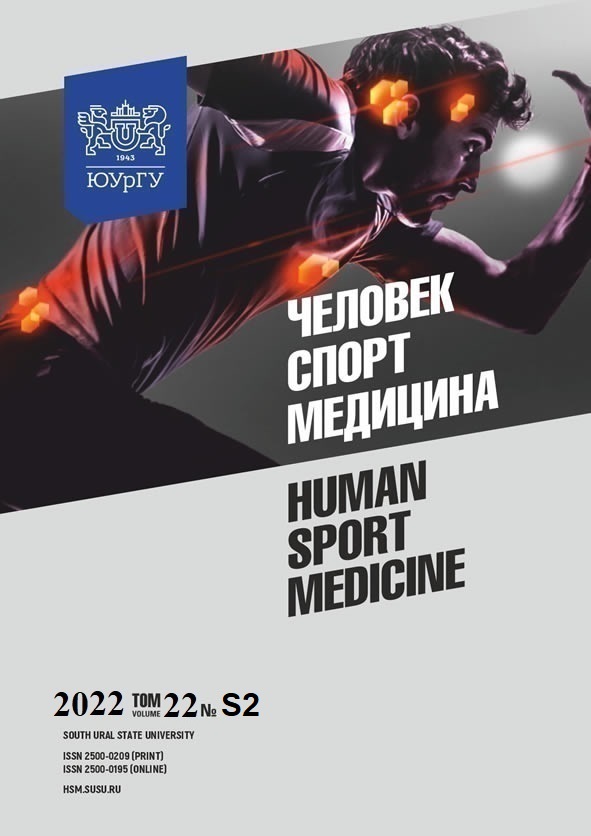ARTIFICIAL INTELLIGENCE MODELING OF PHYSIOLOGICAL PARAMETERS AT ANAEROBIC THRESHOLD
Abstract
Aim. The paper aims to develop a predictive model of quantitative physiological parameters at anaerobic threshold during the exercise test to fatigue by means of artificial intelligence. Materials and methods. The study involved 1273 athletes aged from 18 to 35 years. All athletes performed incremental exercise to fatigue. Physiological parameters at anaerobic threshold were obtained with machine learning algorithms from the Scikit-learn library: linear regression, regression random forest, gradient boosting regression, support vector regression. Results. The support vector regression algorithm achieves the best results for heart rate, minute respiratory volume, and O2/HR (r2 is 0.82, 0.90, and 0.91, respectively). In terms of VO2, VCO2, the support vector regression algorithm is inferior in prediction accuracy to the linear regression algorithm (r2 is 0.87, 0.86, respectively) by –0.76% and –0.16%, respectively. Conclusion. The quantitative accuracy of the model based on the support vector regression algorithm is comparable with the results of similar studies. Thus, it allows us to use it as a recommendation system for measuring quantitative parameters at anaerobic threshold. The weak point of the model is the use of protocol-dependent load attributes, so further improvement of the model will be aimed at correcting this shortcoming.
References
References on translit
Copyright (c) 2022 Human. Sport. Medicine

This work is licensed under a Creative Commons Attribution-NonCommercial-NoDerivatives 4.0 International License.















